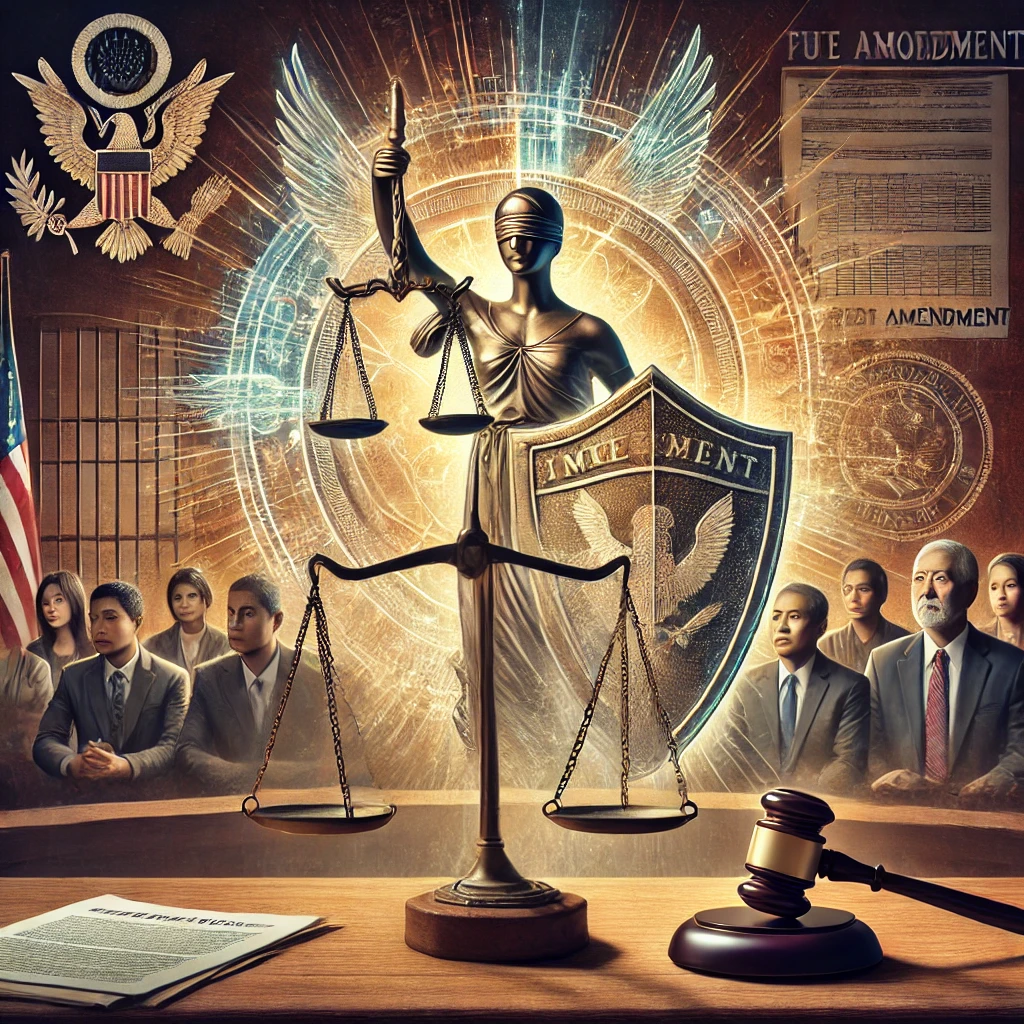
Understanding Due Process in Deportation: Coerced Statements and Fairness under the Fifth Amendment
Case: Bong Youn Choy v. Barber, 279 F.2d 642 (9th Cir. 1960)
Summary of the Case
Legal Issue Addressed:
The case focused on whether statements obtained through coercion during deportation proceedings violate the due process protections guaranteed by the Fifth Amendment of the U.S. Constitution. Specifically, it examined whether such coerced statements could serve as the basis for deportation orders.
Facts and Circumstances:
- The Choys’ Background: Bong Youn Choy and his wife, Korean-born resident aliens, were ordered deported by U.S. immigration authorities. The Choys had entered the U.S. with temporary visas after World War II and later faced allegations of overstaying their visas and engaging in Communist Party activities.
- Allegations and Hearings: The Immigration Service accused Mr. Choy of joining the Communist Party of the United States in 1948. During the initial hearings, Mr. Choy admitted to attending Party meetings and paying dues but later retracted these statements, claiming coercion.
- Coerced Statement: On April 17, 1951, Mr. Choy provided a written statement detailing his alleged Communist activities. This statement followed an intense, seven-hour interrogation the previous night, during which immigration officers threatened him with deportation or perjury charges if his testimony did not align with that of another witness.
Court’s Decision and Reasoning:
The Ninth Circuit Court of Appeals reversed the deportation orders, emphasizing the following key points:
- Due Process and Coerced Statements:
- The court ruled that the coercion Mr. Choy experienced rendered his April 17 statement involuntary and inadmissible. Threats of prosecution and deportation deprived Mr. Choy of the mental freedom required to make a voluntary admission.
- Deportation proceedings, although civil, must adhere to traditional standards of fairness under the Fifth Amendment.
- Reliance on the Coerced Statement:
- The court noted that the special inquiry officer had relied heavily on the coerced statement when concluding that Mr. Choy was a Communist Party member.
- Without the coerced statement, the remaining evidence—including contradictory testimony by Mr. Choy—was insufficient to support the deportation order.
- Fair Treatment and Context:
- The court highlighted the broader context of Mr. Choy’s treatment by U.S. authorities, noting that his work for the U.S. government during the Korean War and subsequent return to the U.S. complicated the fairness of the proceedings.
Outcome:
The Ninth Circuit reversed the deportation order, finding that the inclusion of a coerced statement violated due process. The case underscored that:
- Coerced statements cannot be the foundation of deportation proceedings.
- Even in civil contexts like immigration, due process protections require fairness and voluntary participation.
Summary Conclusion:
This case reaffirmed the importance of due process in immigration law, particularly concerning the inadmissibility of statements obtained through coercion. By emphasizing fairness and rejecting intimidation tactics, the decision set a critical precedent for the treatment of noncitizens in deportation proceedings.
Let’s Get Started
Your legal challenges deserve personalized attention and innovative solutions. Contact Oware Justice Advocates PC today for a consultation and take the first step toward resolution and peace of mind.
355 South Teller Street, Suite 204,
Lakewood, CO 80226
(Visits to the office are strictly by appointment only)
303-514-6589

